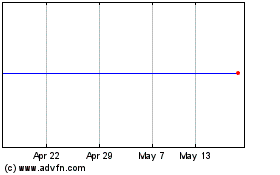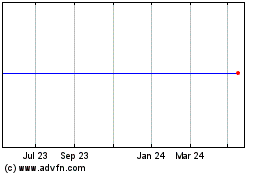The Group has a significant proportion of its centres in the
Americas (predominantly the USA) and Europe. An economic downturn
in these markets could adversely affect the Group's operating
revenues thereby reducing operating performance or, in an extreme
downturn, resulting in operating losses.
Generally, the terms on which the Group earns revenues from
customers and pays its suppliers (principally landlords) are
matched to reduce working capital needs. However, a reduction in
revenues, with no immediate decline in the cost base, could result
in significant funding shortfalls in the business. Any funding
shortfall may require the Group to seek external funding or sell
assets in the longer term.
In addition, competition may increase as a result of landlords
offering surplus space at discounted prices and companies seek to
reduce their costs by sub-letting space. These factors could result
in reduced revenue for the Group as the prices it is able to charge
customers would be reduced.
The Group has taken a number of actions to mitigate this
risk:
-- The Group has entered into performance based leases with
landlords where rent costs vary with revenues earned by the
centre.
-- Building lease contracts include break clauses at periodic
intervals to allow the Group to exit leases should they become
onerous. In cities with a number of centres this allows the Group
to stagger leases such that an orderly reduction in exposure to the
location may be facilitated.
-- The profile of clients in a centre is continually reviewed to
avoid undue reliance on a particular client or clients in a
particular industry Group.
Additionally, in the event of a downturn, the Group has a number
of options for mitigating losses, for example by closing centres at
lease break points.
The Group's strategy also focuses its growth into emerging
markets that will reduce the proportion of the Group's revenue
generated from the USA and Europe over time and provide better
protection to the Group from an economic downturn in a single
market.
Exposure to movements in property markets
A number of the Group's lease contracts contain market rent
review clauses. This means that the costs of these leases may vary
as a result of external movements in the property market. In
particular, in the UK, lease contracts typically contain 'upward
only' rent reviews which means that should open market rents
decrease, then Regus could be exposed to paying higher than market
rent in these locations.
If the Group is unable to pass on increased rent costs to
customers due to local property market conditions then this could
result in reduced profitability or operating losses in these
markets.
Equally, for Group lease contracts without market rent review
clauses, the Group may benefit from paying below market rent in a
market with increasing open market rents. This may allow the Group
to improve profitability if the movements in open market rents are
passed on to clients.
The length of the Group's leases (or the period after which the
Group can exercise any break option in the leases) is usually
significantly longer than the duration of the Group's contracts
with its customers. If demand falls, the Group may be unable to
increase or maintain occupancy or price levels and if revenue
declines the Group may be unable to reduce the lease cost base.
Additional costs could be incurred if the Group disposes of
unprofitable centres.
Changes in assumptions underlying the carrying value of certain
Group assets could result in impairment.
Regus completes a review of the carrying value of its assets
annually to assess whether those carrying values can be supported
by the net present value of future cash flows derived from such
assets. This review examines the continued appropriateness of the
assumptions in respect of which the carrying values of certain of
the Group's assets are based. This includes an assessment of
discount rates and long term growth rates, and timing and quantum
of future capital expenditure, Due to the Group's substantial
carrying value of goodwill under IFRS, the revision of any of these
assumptions to reflect current or anticipated changes in operations
or the financial condition of the Group could lead to an impairment
in the carrying value of certain assets in the Group. While
impairment does not impact reported cash flows, it does result in a
non-cash charge in the consolidated income statement and thus no
assurance can be given that any future impairments would not affect
the Company's reported distributable reserves and therefore its
ability to make distributions to its shareholders or repurchase its
shares.
The Group's geographic expansion may increase exposure to
unpredictable economic, political and legal risks.
Political, economic and legal systems in emerging markets
historically are less predictable than in countries with more
developed institutional structures. As the Group increasingly
enters into emerging markets, the value of the Group's investments
may be adversely affected by political, economic and legal
developments which are beyond the Group's control.
Exposure to movements in exchange rates
The Group has significant overseas operations whose businesses
are generally conducted in the currency of the country in which
they operate. The principal exposures of the Group are to the US
dollar and the euro with approximately 39% of the Group's revenues
being attributable to the US dollar and 19% to the euro
respectively.
Given that transactions generally take place in the functional
currency of Group companies, the Group's exposure to transactional
foreign exchange risk is limited. However, the translation into
sterling of overseas profits and net assets will be affected by
prevailing exchange rates. In the event that either the US dollar
or euro were to significantly depreciate or appreciate against
sterling, this would have an adverse or beneficial impact to the
Group's reported performance and position respectively.
The financial risk management objectives and policies of the
Group, together with an analysis of the exposure to such risks are
set out in note 23 of the Report and Accounts. Wherever possible,
the Group attempts to create natural hedges against currency
exposures through matching income and expense and assets and
liabilities in the same currency.
Given the continued volatility in exchange rates in January 2010
the Board approved a policy which allows the Group to use financial
instruments subject to strict limits, to manage the rates at which
overseas earnings are translated. This will enable the Group to
have more certainty over the sterling value of these earnings.
Group reorganisation and restructuring
In October 2008, the Group entered into a reorganisation to
create a new Group structure. As a result of the scheme, it is
expected that Regus plc will be regarded as tax resident solely in
Luxembourg. If Regus plc were nonetheless to be treated as tax
resident in any other jurisdiction, this could lead to an increase
in the overall effective tax rate and tax compliance costs of the
Group.
As a Jersey-incorporated company having its place of central
administration (head office) in Luxembourg and being tax resident
in Luxembourg, Regus plc is required to comply with both Jersey law
and Luxembourg law, where applicable. In addition, Regus plc's
ordinary shares are listed on the Official List of the UKLA and
admitted to trading on the main market of the London Stock
Exchange. It is possible that conflicts may arise between the
obligations of Regus plc under the laws of each of these
jurisdictions or between the applicable laws and the Listing Rules.
If an irreconcilable conflict were to occur then Regus plc may not
be able to maintain its status as a company tax resident in
Luxembourg.
The Group manages the risk that a significant tax liability
could arise by taking appropriate advice, both in carrying out the
Group reorganisation and on an ongoing basis. In addition, the
Group believes that under current laws and regulations the risk of
irreconcilable conflicts between current laws and regulations
impacting Regus plc is also low.
Centrally managed applications, systems and regional shared
service centres
The Group has moved to a centrally managed applications and
systems environment with the resultant effect that all systems and
applications are housed in a central data centre. Should the data
centre be impacted as a result of circumstances outside of the
Group's control there could be an adverse impact on the Group's
operations and therefore its financial results. This risk is
managed through a detailed service arrangement with our external
data centre provider which incorporates appropriate back-up
procedures and controls.
Note 9: Contingent assets and liabilities
The Group has bank guarantees and letters of credit held with
certain banks amounting to GBP102.2 million (2009: GBP47.0
million). A number of lawsuits are pending against the Group, the
outcome of which in aggregate is not expected to have a material
effect on the Group.
STATEMENT OF DIRECTORS' RESPONSIBILITIES IN RESPECT OF THE
ANNUAL REPORT AND FINANCIAL STATEMENTS
Statement of Directors responsibilities in respect of the annual
report and financial statements
The Directors are responsible for preparing the Annual Report
and the Group and parent company financial statements in accordance
with applicable law and regulations.
Company law applicable to the Group and the parent company
(Regus plc S.A.) requires the Directors to prepare Group and parent
company financial statements for each financial year. In accordance
with that law they are required to prepare the Group financial
statements in accordance with IFRSs as adopted by the EU and
applicable law and have elected to prepare the parent company
financial statements in accordance with Luxembourg Generally
Accepted Accounting Practice and applicable law.
Regus (LSE:RGU)
Historical Stock Chart
From Oct 2024 to Nov 2024

Regus (LSE:RGU)
Historical Stock Chart
From Nov 2023 to Nov 2024
